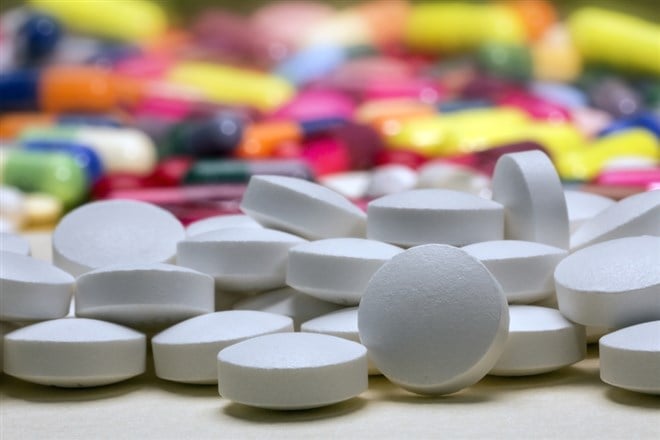
Viking Therapeutics (NASDAQ: VKTX) develops novel therapeutics for patients suffering from disorders related to the metabolic and endocrine systems. Recently, their stock soared for a somewhat unique reason: the success of a peer. While they can certainly develop their own promising products, their trading volume increased on the heels of Madrigal Pharmaceuticals, Inc (NASDAQ: MDGL) publishing the results of their recent drug trial.
Viking Stock Leaps On Madrigal Pharma's Successful MAESTRO-NASH Trial
In the middle of December, Viking Therapeutics saw its stock jump after Madrigal Pharmaceuticals released its successful Phase 3 MAESTRO-NASH biopsy trial of Resmetirom. This is a potential new treatment for nonalcoholic steatohepatitis (NASH) and liver fibrosis. Accordingly, Madrigal plans to file a new drug application to approve the drug as a treatment for non-cirrhotic NASH with liver fibrosis.
Madrigal's remarkable NASH results sent their stock soaring (up more than 231% at the time of this writing). But while the trial definitely left a mark on Madrigal investors, Viking Therapeutics felt an upward push, mostly because the company could be a potential buyout candidate for the drug. After all, Viking's own VK2809 is part of the same family of drugs as Madrigal's Resmetirom (or MGL-3196, as it is known generically). More importantly, VK2809 demonstrated similarly strong results as MGL-3196 in its own respective trial.
It is important to note that while both drugs from these companies address similar health issues—and while both showed impressive results—they are not ultimately interchangeable. Both drugs may be effective, but their studies involved different patient groups, so the collective data is more comprehensive than it is specific. Still, NASH cases are rising and could soon be the leading reason for liver transplants, meaning the market for drugs like these could grow rather quickly.
Viking Hit The Ground Running and Remains In Stride
As a matter of fact, it was the success and promise of VK2809 that caused VKTX stock to soar (more than 88%) in 2018. Around the same time, Madrigal had also launched trials for its drug (again, MGL-3196) with similar success. This data came amidst Viking Therapeutics' initial public option, which launched on June 7, 2018. With approximately 7.5 million shares of common stock available—at a total value of approximately $67.5 million, the VKTX IPO distilled down to about $9.00 per share. Following the IPO, Viking Therapeutics' stock skyrocketed to $24 in less than eight weeks.
So, in the same way, that encouraging parallel data for these two drugs boosted respective share prices for their developers in 2018, it is also doing now, apparently. This time, Viking’s successful NASH trial led to Madrigal share value also taking a big step forward in the following days. Overall, MDGL leaped up by about 268.07% while VKTX jumped 74%.
Viking Peaked Quickly, but Outlook is Strong
Unfortunately, the mid-$20s is the highest value the stock ever hit, though its highest close was $17.42 (Sep 4, 2018). More importantly, share value immediately plunged back to about $7 just as quickly as it crested. Since then, the stock has put up a good fight but has been struggling to get back to $7 throughout the rest of its recent trading history. The great news at Madrigal This has led us to the stock's current value of $6.99, though it is on another upswing.
Viking Therapeutics stock skyrocketed to a new 52-week high and blew past its 52-week high of $5.20. At one point, the stock peaked at $8.25 (on December 19, 2022) before settling back to its current value, which is $6.05. This is up more than 51% over the past 30 days and nearly 100% over the past quarter. It is also up more than 23% over the last year and more than 31% YTD.
More importantly, perhaps, the stock had been trading (that day) at about 91% of its average daily volume. And with a price target of $12.00—representing an upside of 82.4%—it is not difficult to see why. Indeed, the stock has quite a lot of promise, hence its Buy rating.
But here's the rub: while the stock has a lot going for it, there is still one major obstacle to overcome. Earnings per share (EPS) is in the red and has been for quite some time, though it is improving. Sure, this year's Q4 EPS is lower than last year's (-$0.21 vs. -$0.17, respectively), but the most recent report (released on October 26, 2022) beat analyst estimates by $0.02.
As the new year begins, it will certainly be interesting to see if this trend continues when they next report on Feb 8, 2023. The straight-up Buy rating suggests that analysts believe the stock will advance as—or better than—predicted.